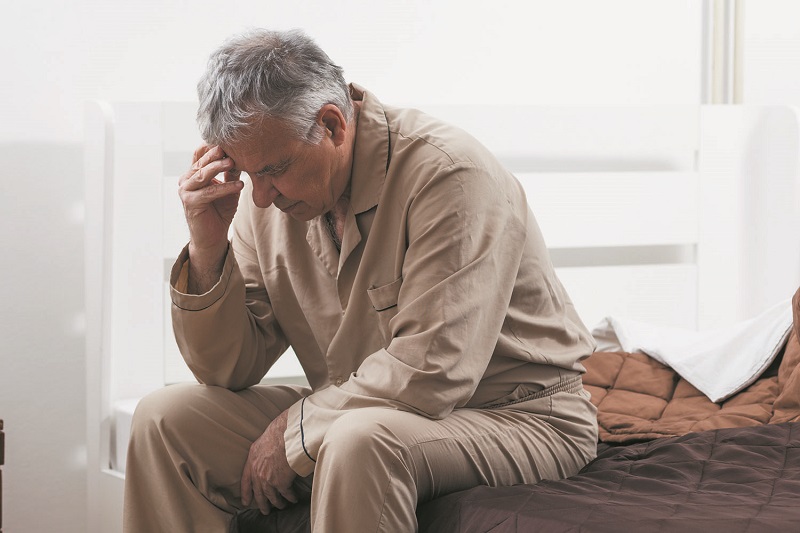A Good Night’s Sleep: Advice To Take To Heart

Image: © Photodjo/Thinkstock
If you're one of the many people who toss and turn nightly, you already know that a bout of sleeplessness can hamper your productivity and sap your quality of life. But the ramifications of poor sleep extend far beyond a cranky mood. Research shows that an on-going sleep deficit can ultimately endanger your heart health.
Hazards of poor sleep
Tens of millions of Americans experience a chronic lack of sleep. While some people shortcut the customary eight hours of snooze time in favor of work or social pursuits, many others suffer from insomnia or another disorder that curtails a healthy slumber.
According to a recent statement from the American Heart Association, an irregular sleep pattern (one that varies from the seven- to nine-hour nightly norm) is linked to a host of cardiovascular risks, including obesity, high blood pressure, diabetes, and coronary artery disease. Short sleep — less than six hours per night — appears to be especially hazardous to your heart health, says Dr. Susan Redline, the Peter C. Farrell Professor of Sleep Medicine at Harvard Medical School. "Sleep-deprived people have higher blood levels of stress hormones and substances that indicate inflammation, a key player in cardiovascular disease. Even a single night of insufficient sleep can perturb your system."
Though not as definitive, there appears to be a link between excessively long sleep periods and heart health as well. Researchers found that people who regularly slept for nine or more hours per night had more calcium buildup in their heart artery walls and stiffer leg arteries than those who normally slept seven hours per night.
The obesity connection
Another mechanism for linking heart disease and short sleep involves obesity. "There is very strong evidence that insufficient sleep is associated with weight gain," says Dr. Redline. Why? One theory is that "short sleepers" tend to snack more and eat more food in general. In addition, insufficient sleep may impair various brain reward systems, including those that govern energy intake, judgment, and food choice. Some studies suggest that sleep-deprived people eat fewer vegetables and gravitate more toward sweet, fatty foods. Fatigue, which often plagues short sleepers, may also cause people to avoid exercise.
The role of sleep disorders
High blood pressure, another prime risk factor for cardiovascular disease, can sometimes be traced to insomnia. Insomnia — difficulty falling or staying asleep — affects up to a third of people at some point in their lives. In addition, some people with insomnia remain in a state of hyperarousal, a psychological state marked by anxiety and feeling "on edge." This can further exacerbate blood pressure problems.
Another common sleep disorder, obstructive sleep apnea, is characterized by a repetitive pattern in which a person briefly stops breathing as the tongue or throat tissue blocks the airway, sometimes hundreds of times a night. Sleep apnea, which is often associated with obesity, is known to raise the risk of high blood pressure, heart attack, and stroke.
What to do
Almost everyone has trouble sleeping once in a while. But if occasional episodes of poor sleep escalate into an unhealthy nighttime routine, check whether your habits are to blame (for instance, staying up very late or doing stimulating activities before bed). Try some basic sleep hygiene strategies, such as going to bed and waking up at the same times each day, and keeping your bedroom cool, dark, and comfortable. If sleeplessness stems from psychological or emotional issues, such as stressful events, mild depression, or an anxiety disorder, talk to your health care provider about options such as cognitive behavioral therapy, which is a safe and effective approach to chronic insomnia.
For sleep apnea, the gold standard treatment is continuous positive airway pressure (CPAP) therapy. This involves wearing a face mask connected to a small machine via a lightweight tube. The machine delivers a stream of pressurized air into your nose or mouth that prevents your airway from collapsing. But for some people, a device similar to a mouth guard that helps keep the jaw forward (and the upper airway open) may be an option. Consult a sleep specialist to find the best solution for your situation, Dr. Redline advises.
Story Credit: https://www.health.harvard.edu/heart-health/a-good-nights-sleep-advice-to-take-to-heart


